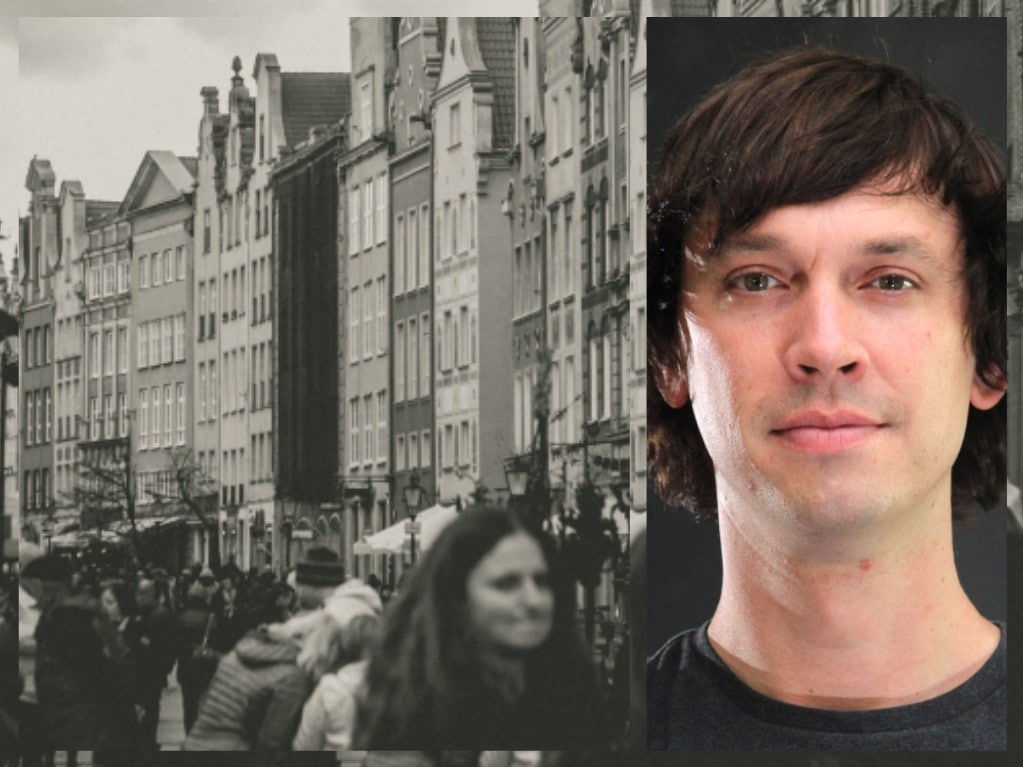I won’t come down…


This article was originally published for Support Raising Solutions by Jhila Tercheria.
This is part two of a two part article series. The first article shares the support raisers experience and can be found here. This article shares a bigger vision and perspective from that of a coach.
What would you do to see all your staff fully funded tomorrow, next week, this summer? Would you do whatever it takes? Would you stop your movement for a moment?
As non profits and missions organizations we want to be movements of God. We want to join Him in his work and to faithfully move for God’s kingdom to come and for the Great commission to be fulfilled. Amidst a global pandemic, many of us were still trying new approaches, trusting God to reach our scope and sending missionaries to the world. Dynamic determination is a wonderful quality that we share. But what if that level of determination went into following God’s call to be one with each other to be fully funded together?
For the next few minutes I’d like to share the story of our ministry as well as the book of Nehemiah to consider how we might rebuild some of the brokenness that exists in our movements surrounding funding. Nehemiah rebuilt his city’s infrastructure through 1) Lament 2) advocacy 3) allness (will describe this more later) and 4) focused determination. In Cru, we have attempted and hope to continue to try to follow this example.
Lament
When I first joined staff with Cru, 10 years ago I remember there was talk of inequity in the systems of fundraising. There were task forces and initiatives promoting change so that everyone could be sent to where God was calling them to serve. But somehow things weren’t changing. We sat in the blindness of our history and that kept us from seeing that our systems (like Nehemiah’s city’s walls) were truly broken. Prophetic voice after prophetic voice stepped up and tried to call us to grieve the reality of our broken walls and seek God’s face for change but nothing happened until finally those voices broke through. When Cru began looking honestly at our funding systems which kept some staff from reporting, we began to grieve. To walk around and consider the damage that had been done and would continue to be done if we didn’t change.
Staff of color were leaving from exhaustion and there was residual pain from being told you are not doing enough. Studies were conducted and task forces commissioned to scan and scale the width and breadth of the damage. We have had varying different working groups do studies on the reporting rates, length of time support raising, leaving rates, and other factors of our staff based on demographics. This confirmed much of what we already knew, but it helped to see the gaps more specifically and have data to offer folks who didn’t see the problem. We had case studies, stories from BIPOC staff revealing how their experiences are different from majority culture staff.
Along with that, our staff conferences created space for us to listen to the personal stories and lament together the pain caused by the impossible gaps in our infrastructure. We needed to create even more opportunities for BIPOC staff to share what the support raising process looks like for them and reflect back our blind spots. So we have kept this as a rhythm even in our new staff trainings, acknowledging the pain BIPOC staff may experience coming in and inviting regular feedback expecting that there will be something to own and to fix. We want all of our new staff to teach us what it’s like to enter Cru’s support raising process and…keep growing in orienting our process to reflect Jesus and not a white cultural norm.
As funding leaders, when we saw majority culture new staff and a BIPOC new staff doing the same effort in MPD but having vastly different results, it made us question our measurements of success. Too often we have linked success in support raising to a confirmation that one is called to ministry (i.e. if you can’t raise your support then perhaps you aren’t truly ‘called’). To be honest, these interpretations of ‘success’ have caused great pain for all of our staff, a tear in our ministry and an organizational culture inhospitable to our staff of color.
Nehemiah, too, grieved his city was not a safe place for God’s people to inhabit. Realizing his reality, He sat down and cried and called out to God. In fact, he was so altered emotionally that others around him took notice. You could even say this lament became an avenue for God’s blessing, and igniter for leveraging power and resources toward his work.
Advocacy
Nehemiah’s grief became a match that ignited a network of advocacy that ultimately rebuilt the city of Jerusalem. Through this, God invited an oppressive Persian king, a scattered people, Israel, and an exiled Nehemiah himself into a restoration project that would ultimately bless them all. The King advocated for Nehemiah. Nehemiah advocacted for his people. The people advocated for each other in the rebuilding process. God coordinated that advocacy by placing that desire in the hearts of all of the people to do something…to move together. And through the process God met them all in their poverty (spiritual or physical).
God dreamed of a city that truly reflected Him and His glory but advocacy was essential for God’s image/glory to be reflected in His people, city, kingdom work; the same is true for His kingdom work today.
For our purposes in Cru, we have defined advocacy as “choosing to be in mutual relationships that sacrificially and strategically leverage all of our individual resources in such a way that everyone in the group is empowered to flourish.”
God has used prophetic voices like Nehemiah in our movements today to weave lament into our culture, but we also want to act. To become and to seek advocates in order to fully fund our ministries. We need it from all types of places. Within and outside of our own staff family.
Cru had a ceremony at one of our all staff conferences recently where we pledged to pursue unity and to “link arms” with one another. We actually physically stood up and linked arms, 7000 strong, in worship together. Though I believe we have a long way to go, the ways we link arms are as follows:
- Vision for advocacy. Within the family, we are inviting all of our staff into advocacy. For those who may have greater networks of partners, we help them bridge their vast network of contacts to folks who have run out.
- We also have created a system called EMF where Cru staff and donors/partners can give to a central pot that partners with BIPOC staff up front as they begin raising their support. This has been huge for creating a level of equity in staff accounts. Our staff can apply and receive funding while working on MPD so that they flourish,not diminish under the stress of finances.
- Team Advocacy: Finally, teams can advocate for each other by taking a more unified, collective approach to funding rather than every man for himself. We have formed teams, or what we call allied circles, of staff that have committed to finish together and to do whatever it takes to advocate for each other until they all reach 100%.
Diverse builders: Seeking to represent ALL staff
In Nehemiah’s situation, many different types of people were needed to rebuild the city wall. (Government leaders, priests, families, fathers and daughters, unnamed townspeople, temple servants, goldsmiths and merchants). And they operated in varying functions and focused on different parts of the wall (gates, doors, kings palace, towers, corners). In rebuilding our funding process (training, coaching, and principles) we wanted to reflect a range of voices to express the gospel as fully as possible.
In our trainings, our goal became…How can joining staff be less and less of an uprooting/disorienting experience for BIPOC staff? Knowing that most of our resources for fund development were contextualized to majority culture, (since most of our staff are white), we are seeking ways to adapt our trainings, methods, and tools to better accommodate a more diverse group of new staff…” Here are a few changes we made…
- Offering a BIPOC specific workshop, where BIPOC staff can process and create communication tools that will work best in individual contexts.
- Simplified our Conversations guides so that it feels malleable in the staff members hand (to one’s language, values, and audience.
- Cultivating Culturally Competent Coaches
- In our basic funding principles, we realized we needed to expand our theology in two main areas. 1) We need to teach passages that highlight community/collective responsibility instead of only ones that deal with personal responsibility and piety. And 2) We must be careful not to assume that money raised equals God’s confirmed calling.
Working relentlessly: I won’t come down…
Nehemiah saw the walls of his city rebuilt in 52 days because he stayed focused and determined and “did not come down”.
If we believe that God is able to provide for ALL of his kingdom workers, then we have to join Him in doing this good work to completion. To stand with God’s people and rebuild broken walls saying like Nehemiah, “I am doing a good work and I cannot come down” . If each of us committed ourselves to this in some way, how many days would it take to see our organizations fully reflect God’s vision…52 days? 100?
If we believe God that ALL of his kingdom workers are essential in the rebuilding of His kingdom, then we cannot move until ALL are able to move. If He didn’t care about unity in sending and mobilizing the church, then He could just snap His fingers and fix the problem. But He doesn’t. Why not? We are His agents of change. He wants us to do it with Him, to learn from Him, to look more like Him in the process with greater sacrifice and dependency on Him. Imagine what God could do with this type of ministry! Will we join Him?
This article is submitted by Jessica Wood of Support Raising Solutions. Support Raising Solutions is a Missio Nexus member. Member organizations can provide content to the Missio Nexus website. See how by clicking here.






Responses